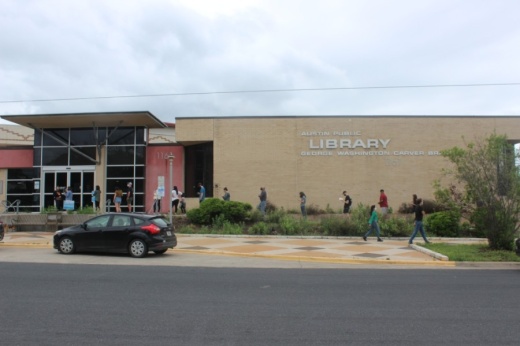Meanwhile, a group of propositions aimed at reforming democratic processes in the city had mixed results. Austinites resoundingly defeated a proposition that would have created a strong-mayor form of government, opting not to replace the city manager as the most powerful position in city hall. However, voters did approve of electing the mayor in presidential years beginning in 2024 and ranked-choice voting, a system that will do away with runoff elections and instead have voters rank candidates in order of preference.
Austin voters are split between three counties: Travis, Williamson and a small number of voters in Hays. However, the vast majority of Austin voters reside in Travis County. Because this was the first May election Austin participated in since 2016, Travis County's turnout was much higher than it has been in past years.
The last time Austin participated in a May election was 2016, when a ride-hailing proposition supported by Uber and Lyft failed, leading the two companies to briefly stop service in the city. Turnout in that 2016 election was 17.53%. Total turnout in 2021 was 22.55%, including 66,598 voters on election day and 104,656 early voters.
Proposition A: Yes 81.03%, No 18.97%
After voters approved this charter amendment, if the Austin Firefighters Association and the city of Austin reach an impasse in collective bargaining negotiations, either side would have the ability to force labor negotiations into binding arbitration.
Proposition B: Yes 57.7%, No 42.3%
Certain behaviors, including sitting or lying down in public areas, panhandling, sleeping outdoors or camping in certain public areas of the city will now become criminal offenses.
Proposition C: Yes 63.26%, No 36.74%
City Council will create rules for appointing the director of police oversight through an ordinance.
Proposition D: Yes 66.46%, No 33.54%
The Austin mayor will be elected in presidential election years beginning in 2024. This means the mayor elected in 2022 will serve a two-year term. The vote does not affect the tenure of Mayor Steve Adler, who will reach his maximum of two terms at the end of 2022.
Proposition E: Yes 57.95%, No 42.05%
Voters supported a ranked-choice voting system, which will allow them to rank up to five candidates on their ballots in City Council and mayoral races. When the ballots are counted, the candidate with the least first-choice votes will be eliminated. Those ballots will then be recounted and redistributed using the second-choice candidate. This process will repeat until one candidate has more than 50% of the votes. However, it remains uncertain whether ranked-choice voting will be allowed under state law.
Proposition F: Yes 14.15%, No 85.85%
Austin will continue in a council-manager form of government after voters resoundingly defeated the strong-mayor proposition. If this had passed, the mayor would have become City Hall's top executive.
Proposition G: Yes 43.33%, No 56.67%
Austin will not add an extra City Council district and instead will keep 10. The city's redistricting committee is in the process of redrawing those 10 districts ahead of the 2022 election.
Proposition H: Yes 42.76%, No 57.24%
Voters rejected the "Democracy Dollars" program would have distributed $25 taxpayer-funded vouchers to each registered voter in the city for each race the voter could cast a ballot in.
While all votes had been reported as of 11 p.m. May 1, these results are considered unofficial until canvassed by the respective county clerks' offices. You can find more election results from Central Texas here.





